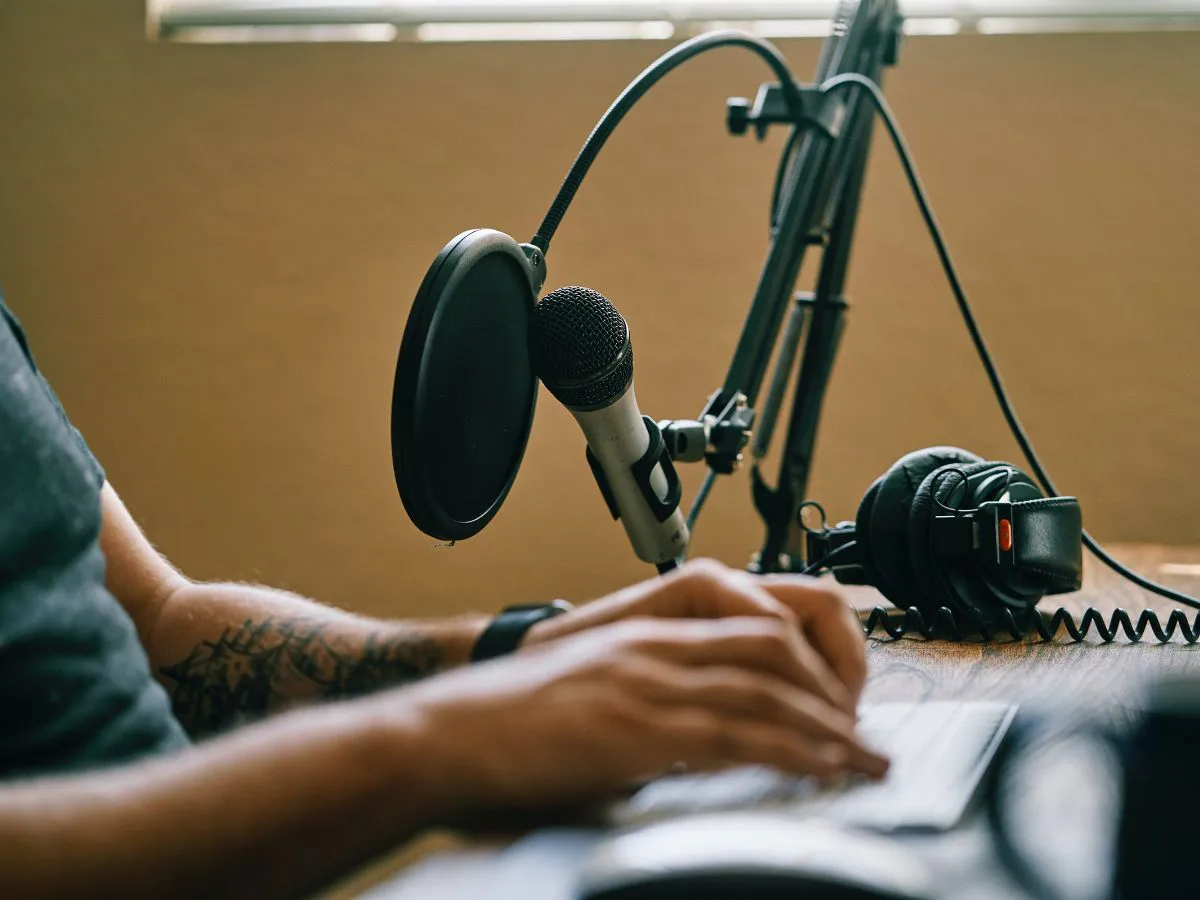
These days it seems like all you need to start a podcast is a laptop and a microphone. That is somewhat true: you can start your own podcast with these basic pieces of equipment. However, to create a successful podcast that will ultimately earn you money, you will need a bit more than just a computer and a mic.
In this article, we are going back to the basics. We’ll look at some options for the best podcast microphones you can get to help you start your podcast journey.
The most crucial thing for a basic podcast setup is a good – and preferably affordable – podcast microphone. Not only will you sound better, but with a good podcast microphone, your podcast’s visuals will also look more professional in comparison to just wearing a headset that sounds bad and probably looks even worse.
Not sure about all the things that go into podcast production? Check out our step-by-step guide on How to Start a Podcast for Your Business here.
Did you know that some microphones are particularly suited to podcasting? You’ll usually find them in audio equipment stores in the “Podcasting Microphones” section. What’s more, they’re actually more affordable than you might think. In this guide to the best budget podcasting microphones, we’ll show you some of the top options around for recording your podcast and getting your podcasting career off to a cracking start.
Before we dive into our top 5 picks for the best budget microphones for podcast, let’s address the most frequently asked questions we get from our clients when they are trying to choose a microphone for their podcast.
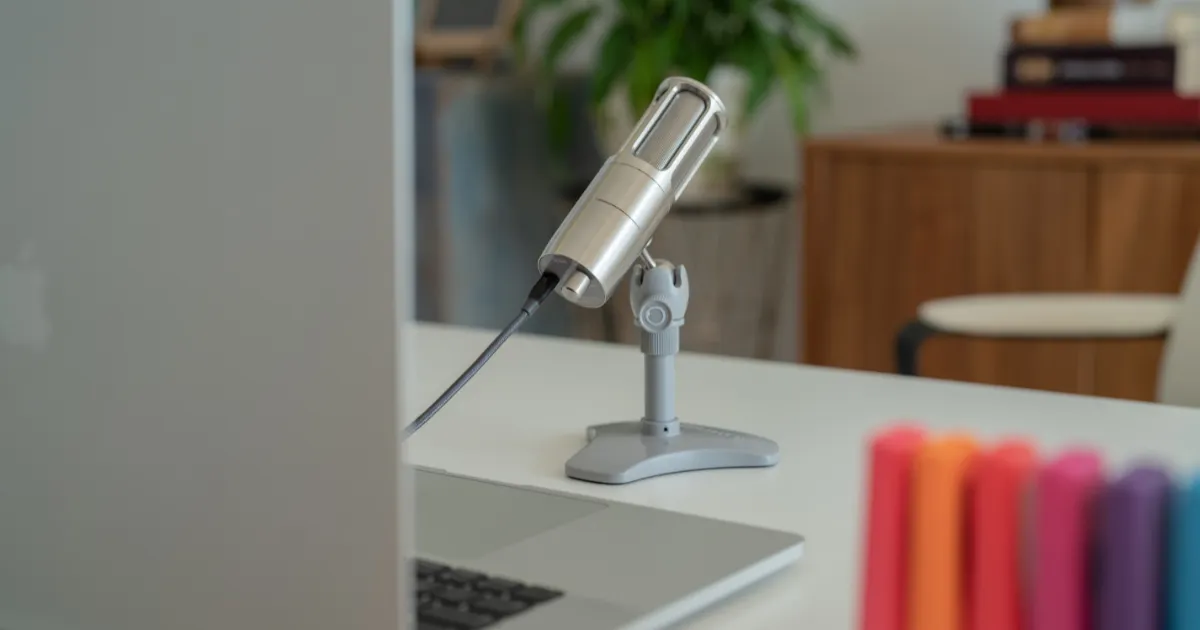
The vast majority of microphones are created for musicians, singers and media professionals. These types of creators don’t usually plug their mics into their laptops. They use an audio interface: a little box with lots of cables and buttons that enhance the audio signal coming from the microphone.
An audio interface has an XLR jack that allows you to plug your microphone into it. Because it enhances the signal being picked up by the microphone it is certainly the superior option when choosing a podcasting microphone, but this also makes it an expensive one.
USB podcast microphones are often cheaper than XLR mics and are a really solid option for those getting started in podcasting who don’t want to break the bank. They have seen much improvement in recent years thanks to the demand from creators who need a more affordable solution. Models like the Blue Yeti or Shure MV7 (which come in both USB and XLR versions) are especially great and have a very budget-friendly price tag.
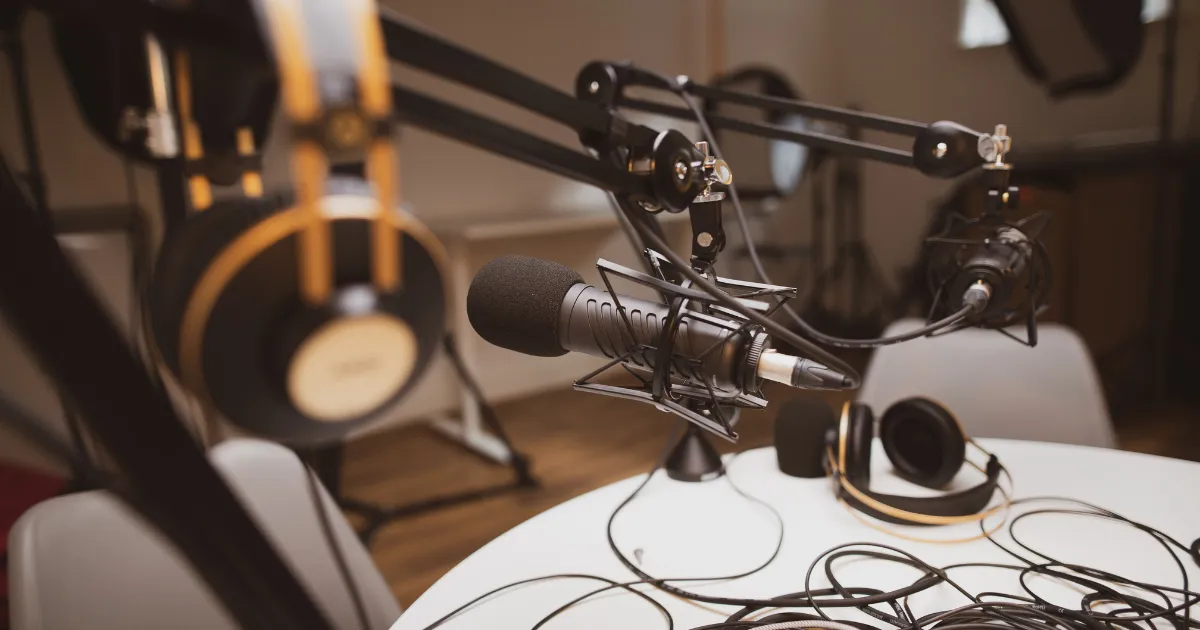
If you are at the beginning of your podcasting journey, a USB podcast microphone will do a great job and get you off the ground. However, if you are planning on going a bit further with your podcasting career, we highly recommend investing in an audio interface and a good XLR podcast microphone. This will future-proof your show and ensure that you’re getting the most professional sound from day one.
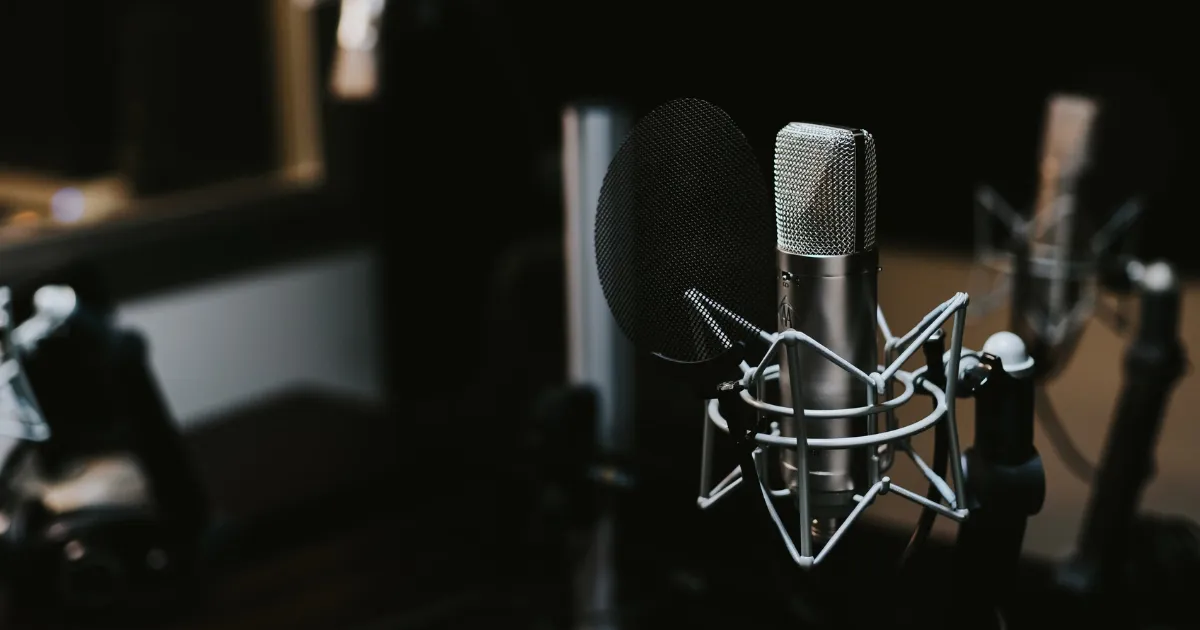
The second question we often get asked by our clients is: what is the difference between condenser microphones and dynamic podcast microphones, and which one is most suitable for my podcast?
The answer depends on where you record your podcast. Most professional podcasts are recorded in sound-proofed studios or rooms that are very quiet. That is why a condenser microphone is often the better choice. Condenser microphones are far more sensitive than dynamic mics and they pick up sound in a very detailed and accurate way. This is perfect for podcasting when you have a nice quiet studio without any background noise. However, if you are recording on a condenser mic and a noise occurs, it will definitely be heard in your recording and it is often hard (if not impossible) to remove it from the audio recording.
This is where dynamic mics can offer a solution. They are less sensitive and more robust than condenser mics. You will lose some of the richness of your voice when recording on a dynamic mic, but if you have to record your podcast in a noisy environment, you should definitely consider a dynamic podcasting microphone. They won’t pick up as much background noise as a condenser would, resulting in a cleaner sound when in noisier spaces.
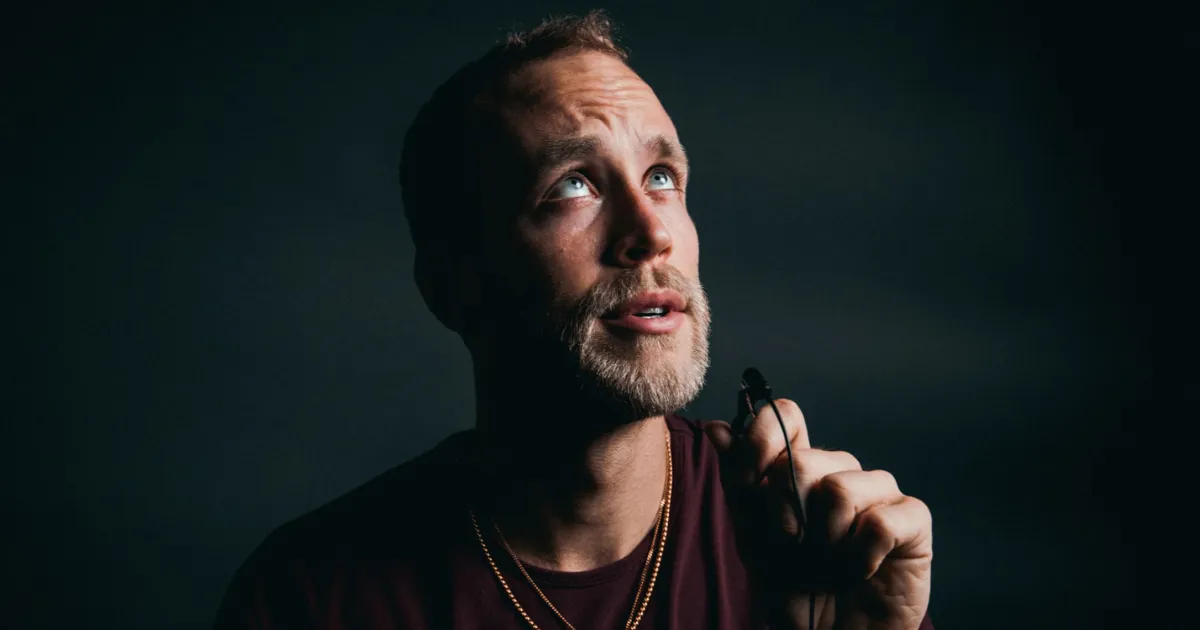
Lavalier (lav) or “pickup” mics are tiny microphones that can be attached to a person’s clothing to record their voice as they move around. These are more typically found in video production and because most podcasts contain static visuals, you don’t often see podcasters using them. However, some creators prefer lav mics because they are small, hardly noticeable in the podcast video and allows you to move around more.
While this is very much a matter of personal preference, if you do want that classic podcast sound, be aware that most lav mics will not produce the same “on-mic” radio feel that you’ve come to expect when listening to podcasts. There are some lav podcasting microphones that offer a podcast quality sound, but they are quite expensive. So, we’ll leave lav mics for another blog post and focus our recommendations for best cheap microphones for podcasts on USB and XLR mics.
Now that we have covered our most frequently asked questions about choosing a podcast microphone, let’s move on to our top 5 picks for the best budget microphones for your new podcast.
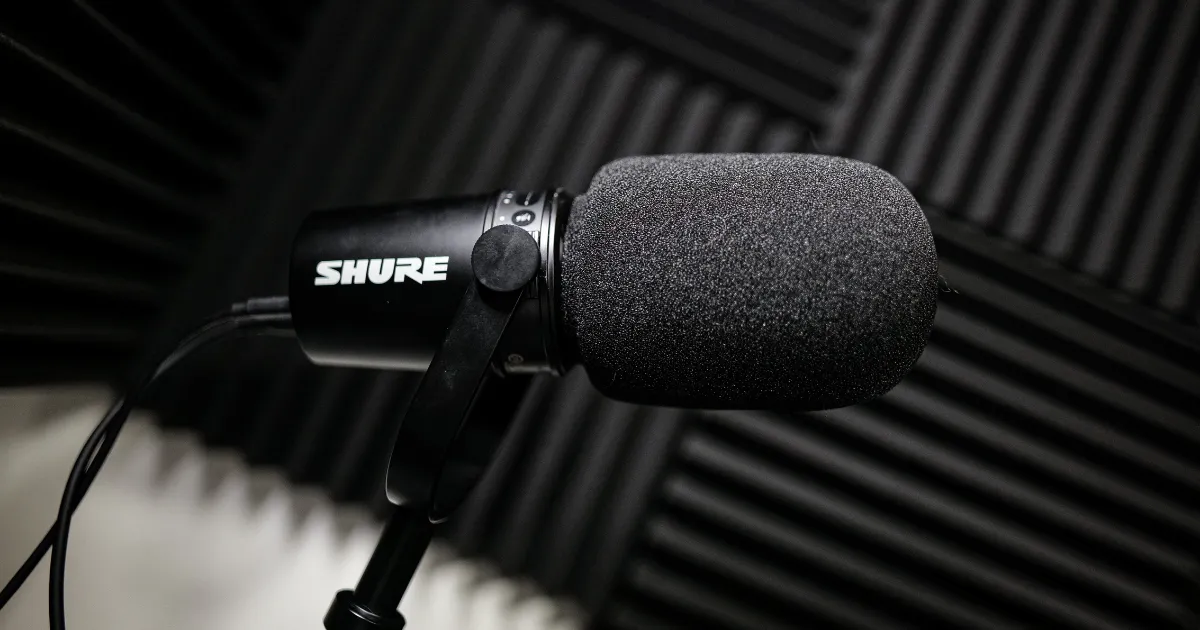
Inspired by the legendary SM7B, the Shure MV7 is a dynamic microphone with USB and XLR outputs. It has additional setup features, a powerful Auto Level Mode and the MOTIV app to help control your vocal tone and distance from the microphone. It is easy to use and a great starting point for those with big podcasting dreams.
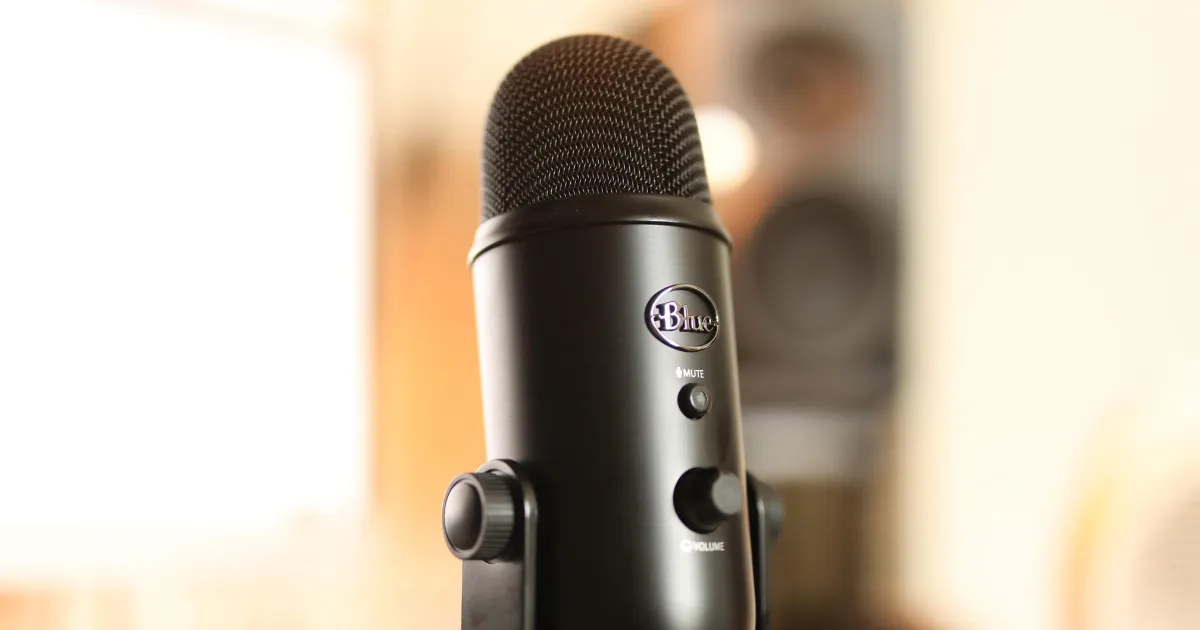
For many years the Blue Yeti has been the top-selling microphone globally. It offers great quality audio thanks to its condenser capsules. It’s also effortless to use, featuring plug-and-play USB functionality. One of its biggest advantages is the range of polar patterns. The Yeti has settings for single recording, face-to-face recording and even group recording. To obtain the best quality sound, you need to be quite close to the mic.
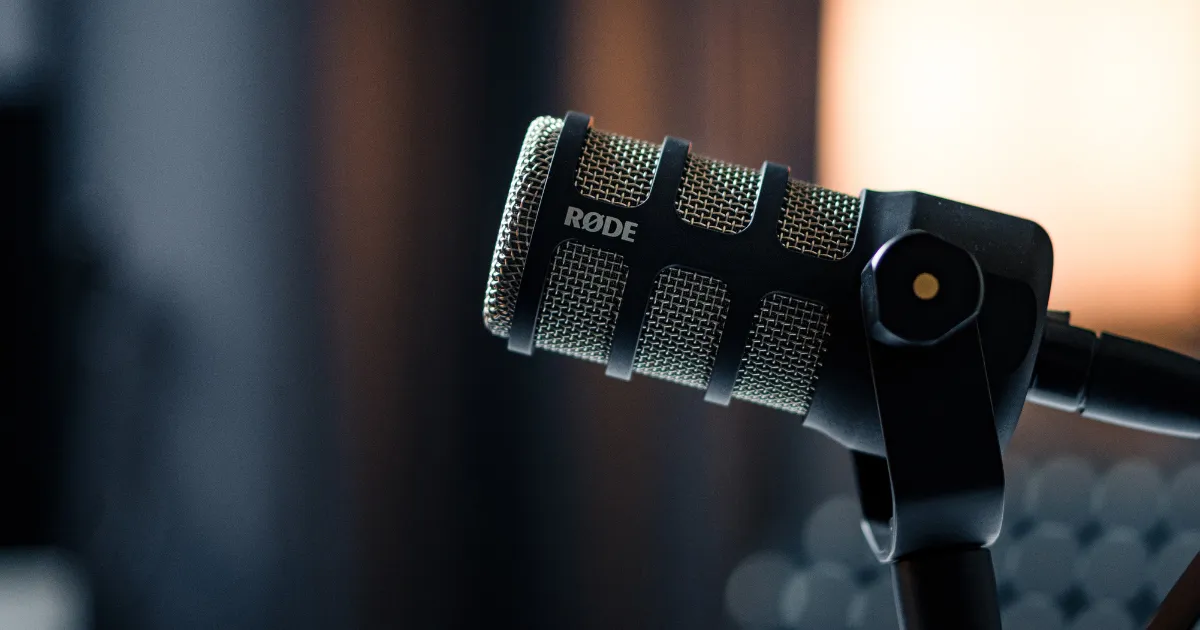
The RØDE PodMic is an excellent entry-level XLR microphone for podcast, offering clean audio and a somewhat uncoloured or realistic sound signature. It has an internal pop filter to minimise plosives (the popping sounds generated by harsh pronunciations of certain letters like “P”). It also has an internal shock mounting to reduce vibrations which allows you to simplify your entire setup. It isn’t particularly feature-packed, but then again, you don’t really need a ton of features when you are getting such great quality out of the box.
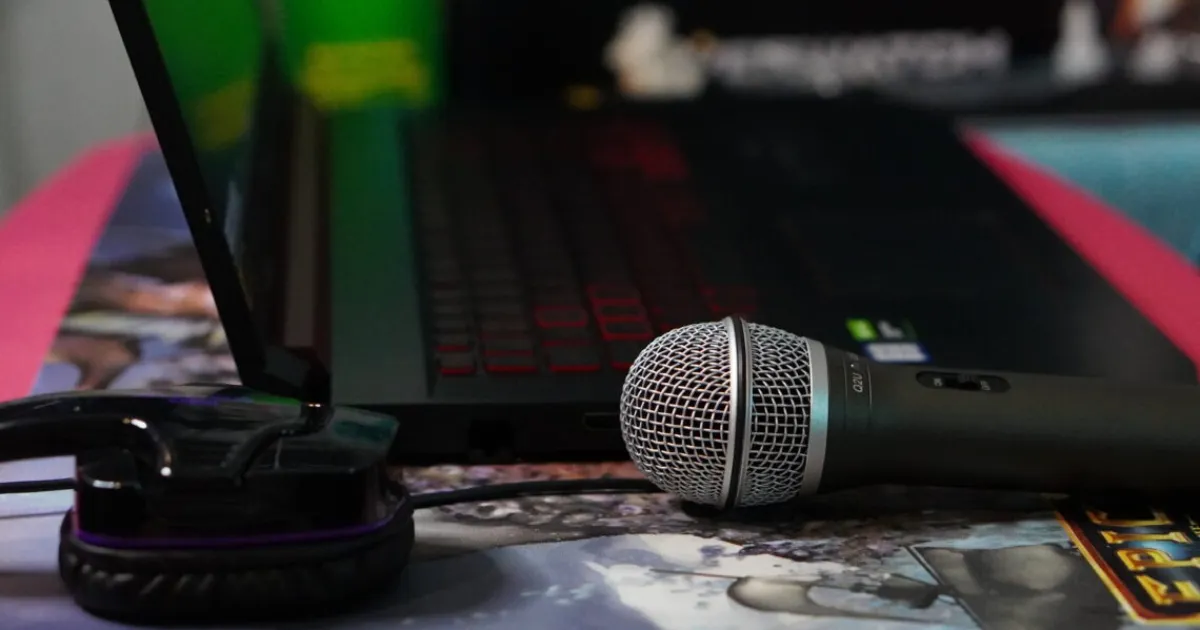
This is a really versatile little beast, having both XLR and USB connections. It is also significantly better-quality option than recording with a cheap headset or the internal microphone on your laptop. Whether you’re recording your podcast solo on your laptop or conducting multi-person interviews through an audio interface, the Q2U delivers good quality audio effortlessly with minimal setup. You will also find it great for on-location interviews and it handles noise extremely well when being held by hand.
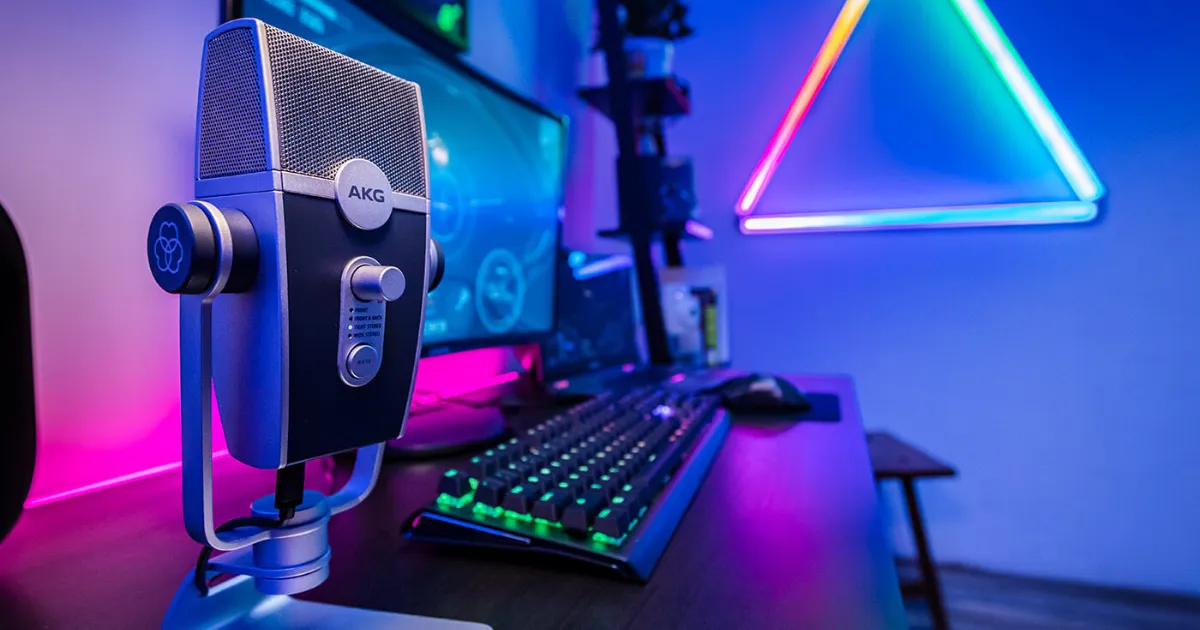
Designed specifically for podcasting, the AKG Lyra is one of the more visually interesting podcast microphones in this price range. It can be connected to a smartphone, tablet or computer via USB, and produces some great results. It is not the most portable, but as a studio mainstay for the beginner, it is ideal choice for a budget podcast microphone. The AKG Lyra has user-friendly labels for its polar patterns, allowing you to easily choose from Front, Front & Back, Tight Stereo or Wide Stereo and simply start recording.
We hope you found our top 5 picks for budget podcasting microphones helpful and that you feel more confident choosing the right option for your show. Once you decide on the podcasting mic that suits you best, check out our guide on how to look and sound good in front of the microphone and the camera so, you can take the next step on your podcasting journey.
Still a bit confused? Don’t worry, we’re here to help. Contact our team of podcast enthusiasts and they will be more than happy to assist you in your podcast adventure.
Contact us here to arrange a meeting. Happy podcasting!